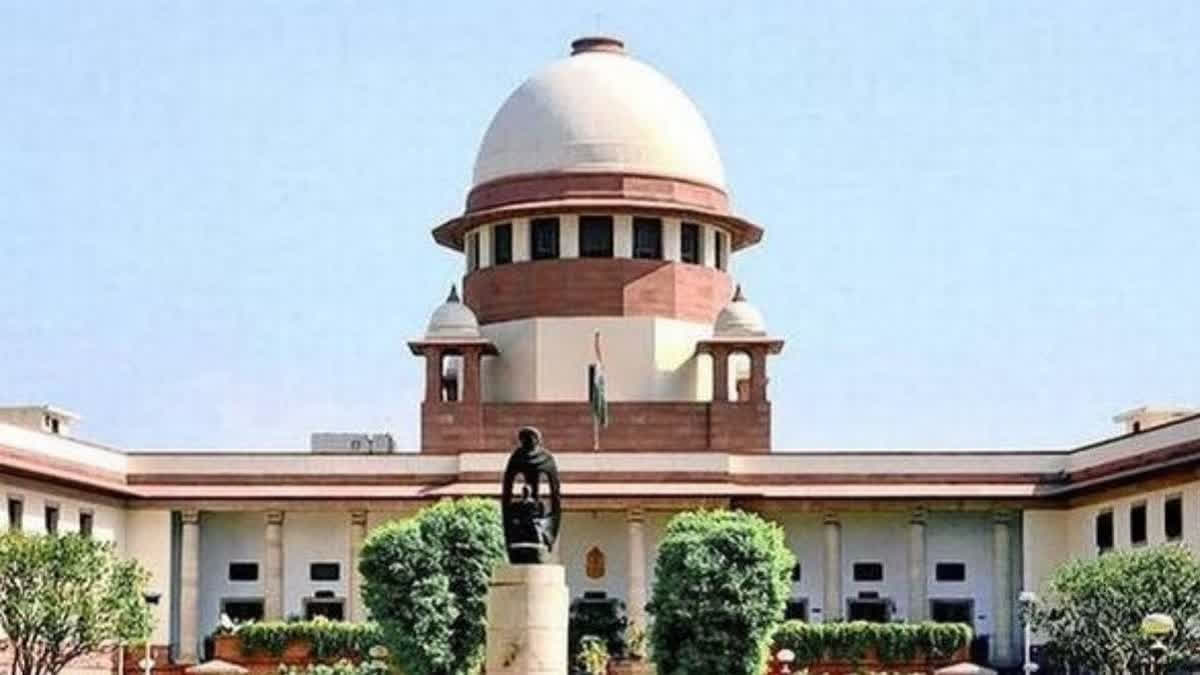New Delhi: The Centre on Thursday informed the Supreme Court that the key legal question whether courts could modify arbitral awards under the 1996 law on arbitration and conciliation should be left to the legislature keeping in mind evolving arbitration requirements of the nation. A five-judge Constitution bench of Chief Justice Sanjiv Khanna and Justices B R Gavai, Sanjay Kumar, K V Viswanathan and Augustine George Masih was deliberating upon the contentious issue whether courts could modify arbitral awards under the provisions of the Arbitration and Conciliation Act, 1996.
"If we hold that setting aside (of arbitral awards does not include the modification (powers) then it is end of the matter and if we hold the otherwise (modification powers) then guidelines have to be framed,” it said.
While posting the hearing on February 18, bench said, “Please provide us with what courts of foreign jurisdictions say on modification powers." Solicitor general Tushar Mehta, appearing for the Centre, outlined the legal history on arbitration, foreign laws and the United Nations Commission on International Trade Law (UNCITRAL) Model Law on International Commercial Arbitration and said the 1996 law was formulated in pursuance of the UNCITRAL model law.
“Practically, the absence of a modification power leads to wasted judicial resources, as courts often have to set aside entire awards even when a minor correction would suffice," he said. This contradicts the pro-arbitration approach of minimal judicial interference and speedy dispute resolution, added Mehta.
While it is accepted that courts should not rewrite awards or review merits, a narrowly tailored modification power — limited to curable defects — would align with the objectives of arbitration law while ensuring justice, he said. "This again, ought to be appropriately dealt with by the legislature," Mehta said.
According to the law officer, while inherent powers, procedural jurisprudence, and evolving arbitration requirements unique to India could justify reading in to Section 34 the power of modification, leaving the matter to the wisdom of the legislature would be the "most appropriate measure" for the country's arbitration framework.
Mehta said the court should not frame guidelines on the modification of arbitral awards as done in the case of Vishaka to address sexual harassment at the workplace as there was a legal vacuum. "The present situation is not one of a legislative vacuum or case similar to Vishaka v. State of Rajasthan,...where judicial process was required to fill the legislative vacuum....at present, the legislature, despite being aware of the position and there being a specific power under the previous enactment, has chosen not to provide such a power," he said.
Mehta submitted it was a settled principle of law that Article 142 couldn't be exercised in contravention or beyond the statute. He said the filling of the gap of power was exercised by the court in the Visakha case as there was a possible violation of fundamental rights of citizens. “In the present case (arbitral awards), no fundamental right violation is discernible,” Mehta added.
Arbitration is an alternate mode of dispute resolution under the 1996 law and limiting the role of courts to interfere with the awards by the tribunals. Section 34 of the Act provides for the setting aside of an arbitral award on limited grounds such as procedural irregularities, violation of public policy, or lack of jurisdiction. Section 37 governs appeals against orders related to arbitration, including those refusing to set aside an award.
Like Section 34, it also aims to minimise judicial interference while addressing exceptional cases requiring oversight. A three-judge bench headed by the CJI on January 23 referred the contentious issue to a larger bench. “This court will first hear arguments of the counsel seeking reconsideration of the ratio expressed in the project director, NHAI v. M Hakeem, that is, the court has the power to modify an award under Sections 34 and 37 of the Arbitration and Conciliation Act, 1996," it said.
The court said it would then hear the counsel who support the view that the court did not have the power to modify an award under Sections 34 and 37. "While examining the aforesaid question, the court will also examine the contours and scope of the power of the court … and if the power of modification exists, to what extent the same can be exercised,” it added.
The bench underscored the need for clarity on the contentious issue. The matter arises from a case titled as Gayatri Balasamy v. ISG Novasoft Technologies Ltd. The courts have traditionally interpreted this section narrowly, avoiding a review of the merits of the award to uphold arbitration’s principles of finality and efficiency.
While referring to the case, the bench had acknowledged the complexity of the issue after taking note of the submissions of senior advocate Saurabh Kirpal, assisted by law firm M/s Karanjawala & Co, on behalf of the respondents.



